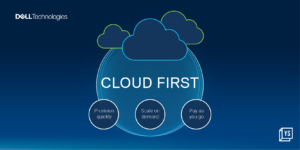With no signs of the COVID-19 pandemic ending, it might seem like the worst time to be an entrepreneur. However, in reality, 2021 has turned out to be a rather fruitful year for startups, logging the highest number of unicorns in India.
Indian startups have been doing better than ever, and as an aspiring entrepreneur, the opportunity is there to be seized.
So how does one stay ahead of the game in such a scenario?
In the digital age, where market dynamics change overnight, a traditional MBA may not be enough anymore. Add COVID-19 to the mix, and businesses are dealing with unprecedented scenarios and shoe-string budgets.
While out-of-the-box thinking has helped entrepreneurs deal with difficult situations, they have also come to realise the true power of digitisation. With businesses moving online, it would only bode well for you as an aspiring entrepreneur to get acquainted with concepts, including data science, artificial intelligence, digital marketing, etc., which will help run your business better.
Artificial intelligence
Artificial Intelligence (AI) has become an integral part of businesses in the world and is no longer something confined to the field of science and technology.
AI can support three critical business needs — automating business processes, gaining insight through data analysis, and engaging with customers and employees.
Chinese ecommerce giant Alibaba makes use of AI daily to predict its customers’ buying preferences, and so does Amazon. Besides introducing the purely AI-driven voice assistant Alexa, Amazon makes use of predictive analytics to recommend items to its customers.
AI can automate most business processes, relegating the most tedious of tasks to machines and freeing up the human workforce for more meaningful tasks.
With talent specialising in AI is in limited supply, an entrepreneur needs to familiarise himself with the technology. If you can understand the technological know-how, you would be able to identify the right opportunities, streamlining your business to make it more efficient.
Digital marketing
No amount of technology can help a business unless the product reaches the right customer at the right time. The future of a business depends on how well the brand engages with its audience online today, or rather, on its digital marketing strategy.
Digital marketing is not only cheaper than the traditional methods of advertising; it yields results faster. The moment one launches an ad on Facebook or Instagram, it reaches millions of users, whose responses can be analysed using free services like Google Analytics.
With India set to overtake China in terms of the number of internet users, the cost-benefit analysis of using digital marketing for small businesses is overwhelmingly favourable.
Digital-first brands with no brick and mortar offices have been successful in having a wide brand recall, often without huge budgets for marketing. Paid ads can be aimed at a targeted audience, something unimaginable with TV and print ads.
As such, understanding digital marketing is a necessity for any aspiring entrepreneur.
Data science
Knowledge is power in business, and data is the fuel that creates this power.
What does data science have to do with business, you might think? The short answer is, the analysis of data decides the performance of a business today and will predict its future.
A degree in data science enables an entrepreneur to predict trends and patterns in consumer behaviour and move accordingly. Data science for business exists to solve real problems, where data is integral to discovery and solutions.
By helping build detailed and personalised profiles of consumers, businesses can combine data points to generate insights to target audiences more effectively. This means services and products can be tailored to particular groups.
Finding correlations between age and income, for example, can help the company create new promotions or offers for groups that were not accessible before.
Today, entrepreneurs also need a knowledge of data science to conduct more accurate performance appraisals of their employees. In fact, the identification of potential candidates suited for the company also relies heavily on the same technology.
Finance: Always a core skill
Besides these new-age courses, whether you are a new startup or a corporate giant, a core knowledge of finance will help both your business and your life.
As an entrepreneur, if you are serious about raising capital, you should know how to manage your own money. If you don’t know how to manage your own money, you can’t be serious about managing somebody else’s money. That’s why a good understanding of finance and business accounting is important.
This is not to say that degrees are devoid of value. While the startup ecosystem has always lead the way in looking beyond a degree on the resume, there are scenarios where a conventional MBA from a reputed institution can open doors for you faster.
Degrees also establish credibility when you introduce yourself to potential clients as a startup. But more than anything, it’s often the contacts you make in college, which eventually help shape your career rather than the degree.
Ultimately, you will need to take a hard look at your business and identify the areas where you need to be an expert or have a clear understanding. This will help you make an informed decision on what courses you should opt for to improve your business acumen in a meaningful way.
(Disclaimer: The views and opinions expressed in this article are those of the author and do not necessarily reflect the views of YourStory.)








![Read more about the article [Weekly funding roundup Feb 7-11] Unicorns give boost to capital inflow](https://blog.digitalsevaa.com/wp-content/uploads/2021/12/weekly-funding-roundup-1640354161359-300x150.png)

